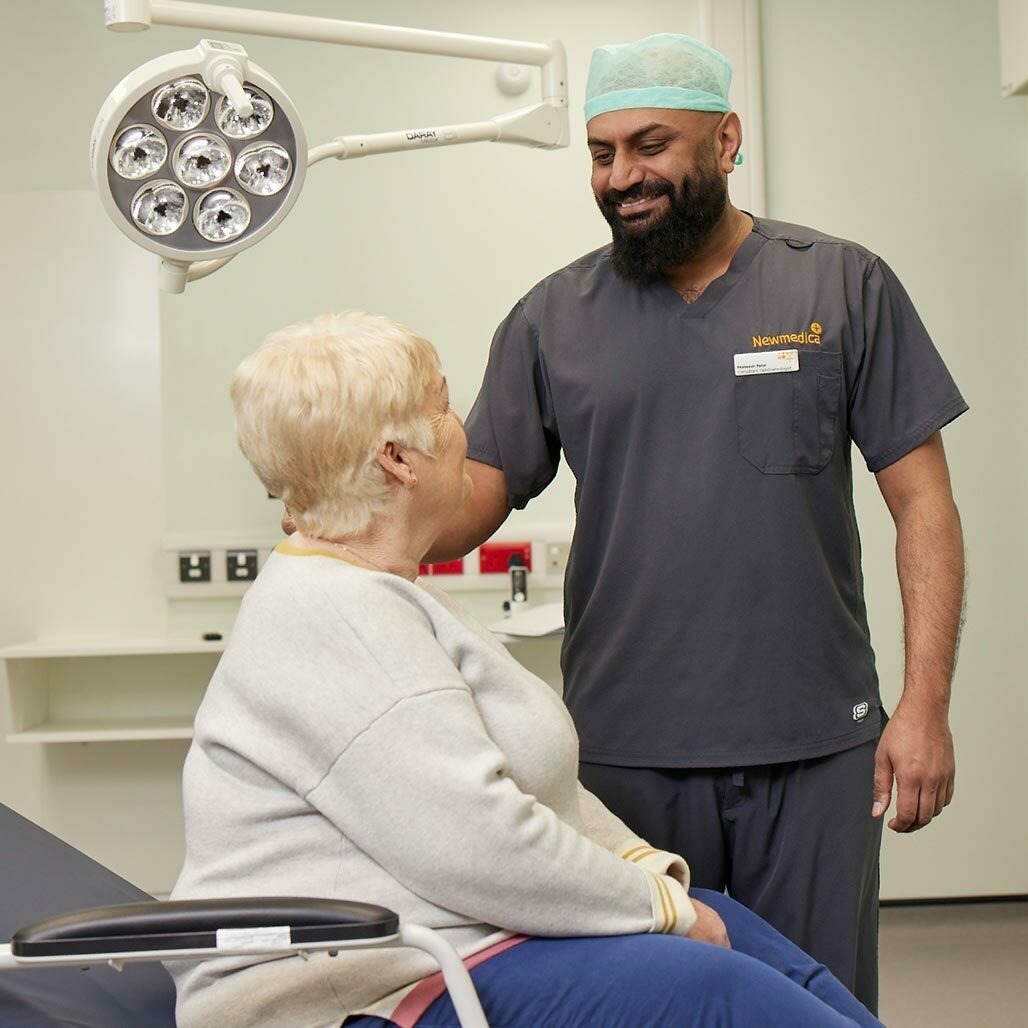They all spoke to me calmly and explained what would be happening. They were amazing.
Sarah’s story

An epiretinal membrane, also sometimes called a macular pucker, is the development of a very thin, clear layer of tissue (a membrane) that forms over the macula (the small area in the centre of your retina). They’re quite common and usually develop as you age.
As the epiretinal membrane that develops is clear, many people don’t tend to notice any symptoms or changes to their vision. Sometimes, over time the epiretinal membrane can become thicker which impacts your central vision – this is when people start to notice distorted or blurred vision.
The most common cause of epiretinal membrane is due to a natural, age-related change in the vitreous humour (the transparent gel-like fluid between the lens and the retina). After the age of 50, this jelly substance starts to change and gradually pulls away from the retina. As this happens, cells can be released as part of the eye’s healing process which multiply and form a membrane over the macula. It can form after retinal tears or surgery for a detached retina.
Usually, this happens very slowly and it stops growing after a while. But when the cells continue to multiply and the membrane contracts, it can lead to visual problems.
An epiretinal membrane is usually picked up by an optometrist during your eye exam. An OCT scan (which many opticians offer) can help to detect early signs of epiretinal membrane. If your vision is affected by it, your optometrist will refer you to specialists like Newmedicas eye clinics to see if you might benefit from epiretinal membrane surgery.
Epiretinal membranes can be treated with a type of surgery known as vitrectomy. Vitrectomy is a procedure that treats eye conditions related to the retina, macula and vitreous humour.
Surgery is usually recommended when you find that the distortion or blurring makes it difficult to see properly and carry out your normal daily activities. The surgery removes the transparent jelly substance that fills the back of your eye (called the vitreous humour) and the epiretinal membrane that has developed. It’s a relatively straightforward procedure that usually takes between 30-40 minutes.
Having this type of surgery usually helps to improve any distorted vision caused by your epiretinal membrane. Lots of people also find that the sharpness of their vision also improves upon the removal of their epiretinal membrane.
Your consultant will give you all the information you need about recovery before you go home, but they’ll generally advise you to:
Plan to take things easy for a few days
Bathe and shower normally, but try to avoid getting anything in your eye
Avoid swimming until you’ve finished using your drops.
Don’t worry if your eye looks red and feels a bit gritty after your epiretinal membrane surgery, this is quite normal and can last for a couple of weeks.
It can take a few weeks for your vision to improve after epiretinal membrane surgery. You might continue to notice more improvement up to six months or a year after surgery, depending on how much your vision was affected by the epiretinal membrane – your consultant will let you know what to expect for your recovery.
Private epiretinal membrane surgery starts from £5,995 per eye and combined vitrectomy and cataract surgery starts from £6,995 per eye. That includes all your pre-and post-operative appointments, as well as your medication.
If you have any questions about available treatments for other eye conditions or you’d like to book an appointment with a full assessment of your epiretinal membrane, get in touch with one our eye clinics.



Aqueous One, Aston Cross Business Village, Rocky Lane, Birmingham, B6 5RQ
Building 720, Waterside Drive, Aztec West, Almondsbury, Bristol, BS32 4UD
St Andrew's House, 4400 Parkway, Solent Business Park, Whiteley, PO15 7FJ
Unit 2, Anchorage Ave., Shrewsbury Bus. Park, Shrewsbury, SY2 6FG
If you think you have an eye condition, you should see your optician or GP for a detailed assessment. They’ll go through all the options available and tell you where you can have your treatment.
The referral process will differ slightly depending on whether you want to be an NHS or private patient. You’ll find all the information you need on our NHS and private patient pages.
Are you a health care professional?
Find out how to refer a patient.
Find details about our private
options and how to get started.
Self-referring? Call 0800 4096 792